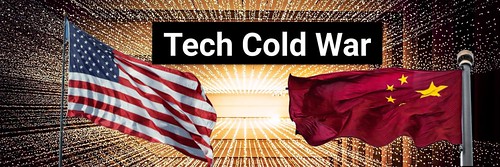President Joseph Biden Jr's. administration faces a host of difficult problems, but in foreign policy its thornist will be its relations with the People's Republic of China (PRC). How it handles issues of trade, security and human rights will either allow both countries to hammer out a working relationship or pull the US into an expensive-and unwinnable-cold war that will shelve existential threats like climate change and nuclear war.
The stakes could not be higher and Washington may be off on the wrong foot.
The first hurdle will be the toxic atmosphere created by the Trump administration. By targeting the Chinese Communist Party as the US's major worldwide enemy, former Secretary of State Mike Pompeo essentially called for regime change, which in diplomatic terms means a fight to the death. But while Trump exacerbated tensions between Washington and Beijing, many of the disputes go back more than 70 years. Recognizing that history will be essential if the parties are to reach some kind of detente.
This will not be easy. Polls in the two countries show a growing antagonism in both people's views of one another and an increase of nationalism that may be difficult to control. Most Chinese think the US is determined to isolate their country, surround it with hostile allies, and prevent it from becoming a world power. Many Americans think China is an authoritarian bully that has robbed them of well-paying industrial jobs. There is a certain amount of truth in both viewpoints. The trick will be how to negotiate a way through some genuine differences.
A good place to start is to walk a mile in the other country's shoes.
For most of human history, China was the world's leading economy. But starting with the first Opium War in 1839, British, French, Japanese, German and American colonial powers fought five major and many minor wars with China, seizing ports and imposing trade agreements. The Chinese have never forgotten those dark years, and any diplomatic approach that doesn't take that history into account is likely to fail.
The most difficult-and dangerous-friction point is the South China Sea, a 1.4 million square mile body of water that borders South China, Vietnam, Indonesia, Borneo, Brunei, Taiwan and the Philippines. Besides being a major trade route, it is rich in natural resources.
Based on its imperial past, China claims ownership of much of the sea and, starting in 2014, began building military bases on island chains and reefs that dot the region. For countries that border the sea, those claims and bases threaten offshore resources and pose a potential security threat. Besides the locals, the Americans have been the dominant power in the region since the end of World War II and have no intention of relinquishing their hold.
While the South China Sea is international waters, it makes up a good deal of China's southern border, and it has been a gateway for invaders in the past. The Chinese have never threatened to interdict trade in the region -- a self-defeating action in any case, since much of the traffic is Chinese goods -- but they are concerned about security.
The US has five major military bases in the Philippines, 40 bases in Japan and Korea, and its 7th Fleet -- based in Yokosuka, Japan -- is Washington's largest naval force. The US has also pulled together an alliance of Australia, Japan, and India -- the "Quad" -- that coordinates joint actions. These include the yearly Malabar war games that model interdicting China's sea-bourne energy supplies by closing off the Malacca Straits between Malaysia and Indonesian island of Sumatra.
US military strategy in the area, titled "Air Sea Battle," aims to control China's south coast, decapitate the country's leadership, and take out its nuclear missile force. China's counter move has been to seize islands and reefs to keep US submarines and surface craft at arm's length, a strategy called "Area Denial." It has also been mostly illegal. A 2016 ruling by the Permanent Court of Arbitration found China's claims on the South China Sea have no merit. But to Beijing the sea is a vulnerable border. Think for a moment about how Washington would react if China held naval war games off Yokosuka, San Diego or in the Gulf of Mexico. One person's international waters are another's home turf.
'The tensions in the South China sea go back to the Chinese civil war between the communists and nationalists, in which the Americans backed the losing side. When the defeated nationalists retreated to Taiwan in 1949, the US guaranteed the island's defense, recognized Taiwan as China, and blocked the PRC from UN membership.
After US President Nixon's trip to China in 1972, the two countries worked out some agreements on Taiwan. Washington would accept that Taiwan was part of China, but Beijing would refrain from using force to reunite the island with the mainland. The Americans also agreed not to have formal relations with Taipei or supply Taiwan with "significant" military weapons.
Over the years, however, those agreements have frayed, particularly during the administration of Bill Clinton.
(Note: You can view every article as one long page if you sign up as an Advocate Member, or higher).






